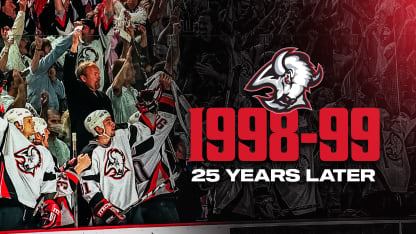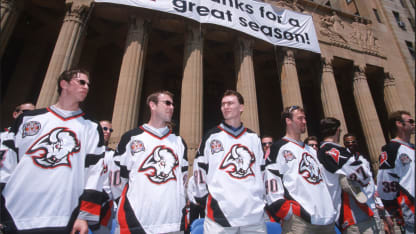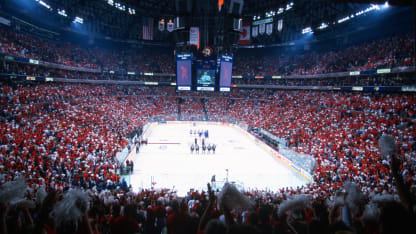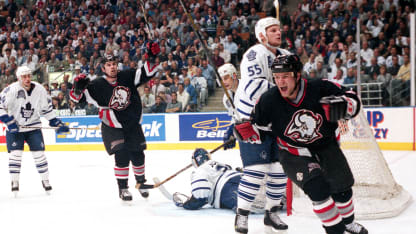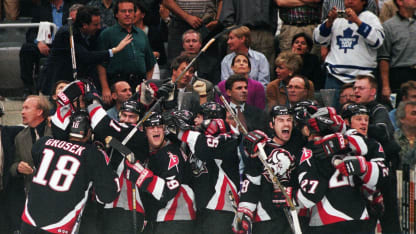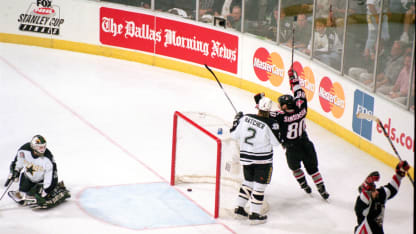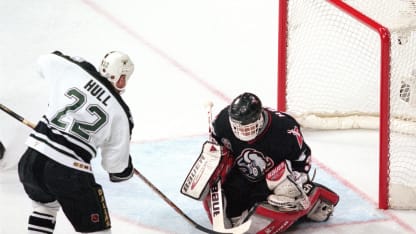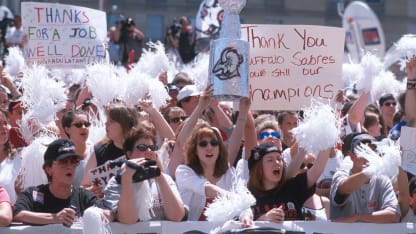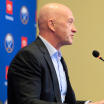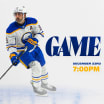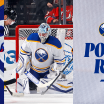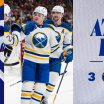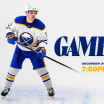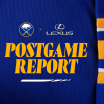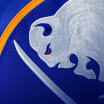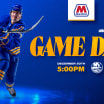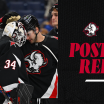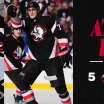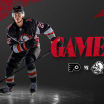“The hardest working team in hockey”
After making it to the second round of the playoffs in 1997 and falling to Washington in the Eastern Conference Final in 1998, the Sabres entered 1998-99 determined to make another long run.
Dixon Ward, Forward: We all wanted to play hard, play for each other. We all felt that we had something to prove. Even our coach felt he had something to prove.
Curtis Brown, Forward: I just think we had a very workmanlike attitude. I think it started right from the top – Lindy Ruff expected a lot out of us, obviously. … And I thought we really came together at the right time. I think everybody had their role, which is so critical.
Ward: We had started that years before – that mentality that we’re the Buffalo Sabres, we’re gonna have to outwork teams. We had a group of guys that had the ability to work very hard. And the systems that they put in place and taught us were very, very valuable for us. Everybody was accountable to those systems.
Michael Peca, Forward: Everybody was so in-tune with what we were doing. It just created a lot of chemistry.
Brown: Everybody really truly played for the logo on the front. Nobody cared who got the recognition when the puck was dropped, and I think that was the key.
Peca: We put a lot of pressure on each other to play the right way – to possess the puck, focus on offense. We believed in doing it as a group. I think our main focus was to just literally outwork the other team, possess the puck, and just be physical.
Dwayne Roloson, Goaltender: Everyone chipped in. And just about every playoff team you can ask, the reason why they had success is because everyone bought in. From the black aces to the spare guys that are coming up from the minors. Give the coaching staff a lot of credit too – Lindy, Ramer (Mike Ramsey) and Donny (Don Lever) – they were prepared for every team.
Ward: We were as prepared that year as we ever had been going into each game. People ask me all the time, who are the best coaches I’ve ever played for over the course of my career? But Lindy by far for me was the best bench coach I ever played for. He could make adjustments mid-game in our structure and our style to counteract what the other team was doing. Those coaches were always prepared in having a game plan for us. They built a game plan around what we were capable of. They weren’t asking us to do anything that we couldn’t do. They were just trying to get the best out of what we could offer at that time. Obviously, with a system that revolved around the best goalie in the world, it proved to be successful for us.
Brown: Ultimately, if I’m telling the truth, we also had a guy that was spectacular to get us through a lot of the games – I think his last name was Hasek.
Stu Barnes, Forward: I remember right from Day 1 in practice and warmup in games how competitive he was. That was the thing that really kind of surprised me. I didn’t realize that he was as good as he was and competitive as he was. Couldn’t score on him in practice, so that seemed like a complete waste of time going down and taking shots on him because they were never going in.
Roloson: That’s why he was so good – he was two steps ahead of everybody. I learned a lot from him, and I really enjoyed playing behind him.
Ward: Besides Dominik, we didn’t have somebody that was head and shoulders better than the next guy. We were all just a group of guys. And certainly, we had guys that performed well in certain situations, but everybody felt important, and everyone respected one another. And that was the best part about that group.
Peca: If you define what a great team is, it’s a group of guys that are really focused on the same thing regardless of their own success or intentions. We may not have had all of the high-end talent in all the positions like other teams, but I think the true thing that makes a great team, which we had, is we got along so well off the ice. Sometimes more than we did on the ice. That is such a powerful thing for any team in any sport.
Ward: The biggest takeaway I had was none of us really took any of ourselves very seriously. We were just dudes showing up to play hockey. That’s the kind of memory that I have. When we played, we played hard. But what a goofy bunch of guys and what a bunch of characters in one locker room.
Peca: We felt we continued to gain experience and put ourselves in a position to ultimately play and compete for a Stanley Cup. I think as we went through the trade deadline period, adding a Stu Barnes and a Joe Juneau seemed to add a lot of character and selflessness to the hockey team.
The Sabres went on to earn 91 points during the regular season to secure their fourth straight playoff berth.

